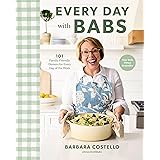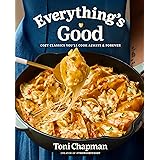Navigating the world of alkaline eating presents unique challenges, especially when the goal is to pack on healthy mass. As discussed in the accompanying video, the journey of gaining weight on an alkaline vegan diet requires a precise understanding of food composition and its physiological impact. For many embracing this lifestyle, the initial focus often centers on detoxification and maintaining a healthy pH balance, sometimes leading to unintended weight loss. This comprehensive guide delves deeper into the strategies and specific foods recommended by experts, including insights from Dr. Sebi’s son, to ensure you can achieve your weight gain objectives effectively within the alkaline framework.
The quest for healthy weight gain, particularly muscle mass, on a plant-based, alkaline regimen necessitates a caloric surplus derived from nutrient-dense, alkalizing foods. Imagine if your dietary choices not only supported your muscle growth but also enhanced your overall cellular health. This expert approach moves beyond mere calorie counting, focusing on foods that promote optimal metabolic function and nutrient absorption.
Strategic Alkaline Foods for Healthy Weight Gain
The video highlights several key players in the alkaline arsenal for mass building. Let’s expand on these and explore how they contribute to effective alkaline vegan diet weight gain.
Garbanzo Beans: A Powerhouse for Plant-Based Mass
Garbanzo beans, commonly known as chickpeas, are a cornerstone for anyone looking to increase caloric intake and protein on an alkaline diet. They offer a robust profile of complex carbohydrates, which are essential for sustained energy and replenishing glycogen stores after exercise. Furthermore, their significant protein content, coupled with dietary fiber, supports muscle repair and growth while promoting digestive health.
In contrast to simple sugars, the complex carbohydrates in garbanzos provide a steady release of energy, preventing spikes and crashes. This makes them ideal for athletes or individuals with higher energy demands. Imagine incorporating garbanzo-based hummus or roasted chickpeas into your daily meals; these options not only provide essential nutrients but also add substantial, healthy calories.
Quinoa: The Complete Alkaline Grain Alternative
Often lauded as a “superfood,” quinoa stands out for its complete amino acid profile, a rarity among plant-based foods. This means it provides all nine essential amino acids necessary for muscle synthesis and overall bodily function. Its caloric density, combined with high fiber and mineral content, makes it an excellent choice for gaining weight on an alkaline diet.
However, some strict alkaline proponents debate quinoa’s true alkalinity. While technically a seed and generally less acid-forming than traditional grains, preparation can influence its pH. Rinsing quinoa thoroughly before cooking helps remove saponins, which can contribute to a slightly bitter taste and potential acidity for some individuals. Properly prepared, quinoa offers a versatile, nutrient-rich base for countless alkaline meals, from breakfast bowls to savory pilafs.
Avocados: Healthy Fats for Sustained Energy and Caloric Density
When it comes to increasing caloric intake with healthy fats, avocados are unparalleled within the alkaline framework. Rich in monounsaturated fatty acids, they are excellent for energy density and supporting hormone production. These fats are crucial for nutrient absorption, particularly for fat-soluble vitamins, which in turn supports overall health and metabolic efficiency.
A single avocado can provide a significant number of calories, making it an easy addition to boost your daily intake without feeling overly stuffed. Think about blending avocados into smoothies, mashing them for alkaline guacamole, or slicing them into salads. Their creamy texture and mild flavor make them adaptable to a wide range of dishes, facilitating consistent caloric surplus for weight gain.
Hemp Seeds: Tiny Powerhouses of Protein and Omegas
Hemp seeds, or hemp hearts, are another vital component for those seeking to build mass on an alkaline diet. They are celebrated for their impressive protein content, offering a complete profile of amino acids. Beyond protein, hemp seeds are an exceptional source of omega-3 and omega-6 fatty acids in an optimal ratio, which are critical for reducing inflammation and supporting brain and heart health.
These small seeds are incredibly versatile; they can be sprinkled on salads, blended into smoothies, or used to make hemp milk. Their caloric density from healthy fats and protein makes them an effortless way to boost the nutritional value and calorie count of almost any alkaline meal. Incorporating hemp seeds regularly is a simple yet powerful strategy for alkaline vegan diet weight gain.
The Alkaline Food Spectrum: Clarifying Common Misconceptions
The conversation around what constitutes an alkaline food can sometimes be confusing. The video directly addresses two common misconceptions: oats and kale/spinach.
Oats: Understanding Their Alkaline Status
The assertion in the video that “oats are not alkaline” due to their starch content challenges conventional understanding for many. While oats are often considered a healthy whole grain, from a strict Dr. Sebi nutritional perspective, many grains, including oats, are deemed acid-forming due to their processing and carbohydrate structure. Starch, when broken down, can contribute to an acidic internal environment, which is counter to the alkaline philosophy.
In contrast to grains like oats, alkaline guidelines often favor more easily digestible and mineral-rich pseudo-grains or seeds. This perspective emphasizes minimizing starches that might lead to inflammation or digestive burdens. For individuals committed to a strict alkaline regimen, avoiding oats means exploring other nutrient-dense, alkalizing carbohydrate sources to fuel weight gain.
Kale vs. Spinach: A Nuanced Look at Iron and Oxalates
The video’s discussion on kale and spinach, particularly the claim that “spinach takes the iron from your body,” highlights an important nutritional consideration. Spinach is indeed rich in iron, but it also contains high levels of oxalates. These compounds can bind to minerals like iron and calcium, potentially inhibiting their absorption by the body.
However, this doesn’t mean spinach *removes* iron; rather, it can make the iron it contains, along with other dietary iron, less bioavailable. In contrast, kale, while still containing some oxalates, generally has lower levels than spinach. Moreover, kale is rich in a spectrum of minerals and vitamins, and as the video states, it’s often considered less acid-forming and more hydrating. For individuals concerned about iron absorption on an alkaline vegan diet, incorporating a variety of low-oxalate, iron-rich greens like kale, watercress, or parsley is a prudent strategy. This helps to mitigate the potential effects of oxalates while still obtaining essential micronutrients.
Beyond Food: Holistic Strategies for Alkaline Mass Building
Gaining weight on an alkaline vegan diet extends beyond simply choosing the right foods; it involves a holistic approach to nutrition, exercise, and lifestyle.
Caloric Density and Nutrient Timing for Optimal Gain
To gain weight, a consistent caloric surplus is non-negotiable. This means consuming more calories than your body burns each day. However, within the alkaline context, these calories must come from nutrient-dense sources. Prioritize meals that are rich in healthy fats, complex carbohydrates, and plant-based proteins.
Consider the timing of your meals, particularly around workouts. Consuming nutrient-rich, alkaline meals before and after exercise can optimize muscle recovery and growth. Imagine a pre-workout smoothie with bananas, hemp seeds, and almond milk, followed by a post-workout meal of quinoa, garbanzo beans, and plenty of greens. This strategic fueling supports your body’s anabolic processes.
Hydration and Digestive Health: Cornerstones of Absorption
Optimal hydration is fundamental for all bodily functions, including nutrient absorption and metabolic efficiency. Drinking plenty of spring water or alkaline-ionized water throughout the day helps transport nutrients to cells and remove waste products. Poor hydration can hinder your body’s ability to utilize the calories and nutrients you consume.
Furthermore, a healthy digestive system is paramount for alkaline vegan diet weight gain. If your gut health is compromised, your body won’t effectively absorb the nutrients from even the most perfect alkaline foods. Incorporate fermented alkaline foods, and focus on fiber-rich options to support a thriving gut microbiome. This ensures that the efforts you put into your diet translate into actual physical gains.
Exercise and Recovery: Synergistic with Alkaline Nutrition
For those aiming for healthy weight gain, specifically muscle mass, resistance training is crucial. Coupling an alkaline, calorically sufficient diet with a consistent strength training program creates the ideal environment for muscle hypertrophy. Focus on compound movements that work multiple muscle groups simultaneously.
Equally important is adequate rest and recovery. Muscle growth occurs during periods of rest, not solely during workouts. Ensure you are getting sufficient sleep (typically 7-9 hours per night) to allow your body to repair and rebuild muscle tissue. Integrating these elements provides a comprehensive strategy for effective gaining weight on an alkaline diet, fostering both physical development and robust health.











